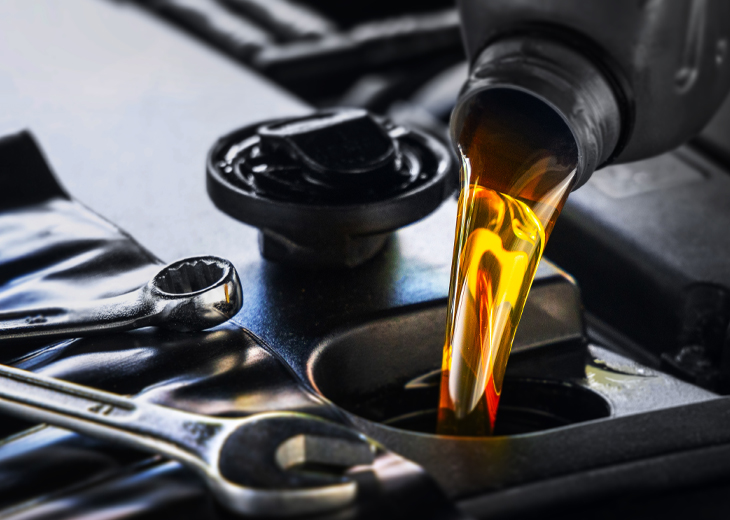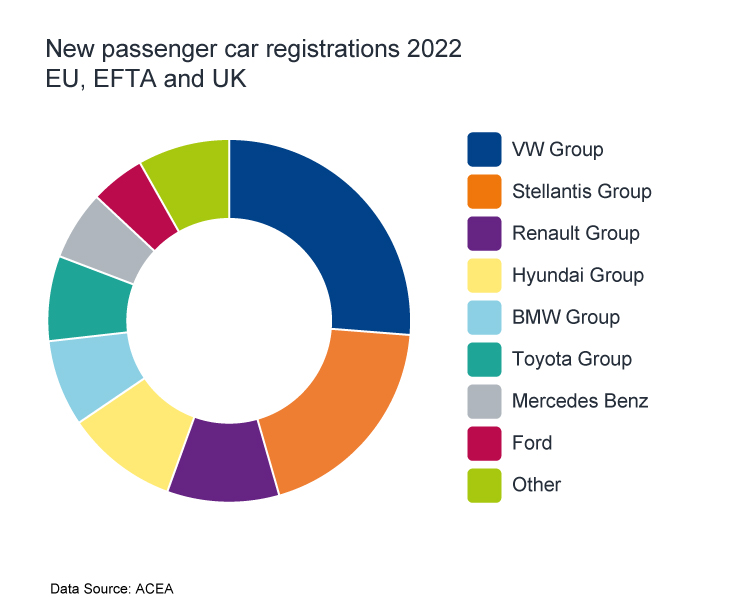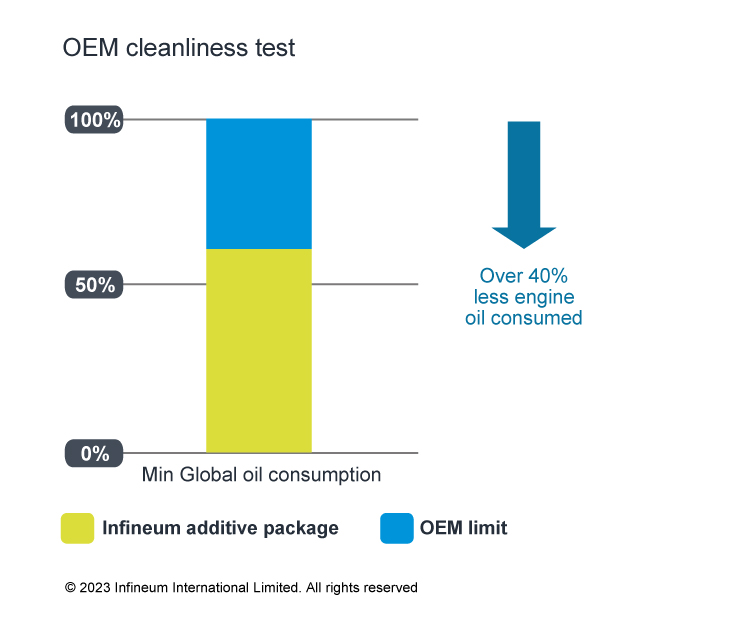Passenger cars
ASEAN a market in transition
09 December 2025
03 October 2023
Additive technology enables low viscosity SAE 0W-20 lubricants to be formulated with bio-derived base oils

The automotive industry's focus on sustainability and decarbonisation is driving not only powertrain electrification and the use of more sustainable materials but also innovations that reduce fuel consumption in conventional and hybrid vehicles. Insight talks to John Brenchley, Infineum EMEA Executive Operational Marketing Manager, about new additive technology that is supporting these requirements by enabling more sustainable, low viscosity grade lubricants to be developed that are compatible with a wide range of vehicles.
The latest passenger car industry and OEM specifications are enabling lower viscosity fluids that help to improve vehicle fuel economy performance whilst also delivering the required level of hardware and aftertreatment protection. Globally, viscosity has been trending lower, from a light duty engine oil market once dominated by SAE 10W-xx grades to one that is now around 60% SAE 5W-xx and 0W-xx grades. And, looking ahead, the shift towards lighter SAE 0W-xx grades is expected to continue as OEMs look for every possible lever to reduce fuel consumption.
In Japan, the JASO GLV-1 classification, which targets SAE 0W-8 and 0W-16, was developed as a standard with low viscosity, excellent fuel economy and engine reliability and has been claimable since October 2019. In Europe, the major step is the introduction of lower viscosity SAE 0W-20 oils, with the focus on excellent fuel economy while maintaining engine durability across longer engine oil drain intervals (ODI).
The European passenger car market comprises a large number of manufacturers with wide vehicle portfolios. This, combined with increasingly severe industry and OEM specifications, particularly in terms of durability, oxidative protection, and mandated fuel economy, means that complexity is increasing for lubricant formulators.

Infineum is first to market with a market general additive package enabling French OEM-approved SAE 0W-20 formulations in bio-based materials. By meeting the most recent API and ACEA claims along with the latest approvals from major OEMs including PSA, Renault and Mercedes Benz, the new additive solution enables market leading fuel economy performance to be delivered via factory fill and service fill lubricants.
Proven performance has been achieved in the difficult and demanding PSA tests for SAE 0W-20 grades.
Since OEM requirements vary considerably, we have built in the ability to deliver mid-SAPS (sulphated ash, phosphorus and sulphur) targeted OEM requirements across a wide range of viscosity grades (SAE 5W-30, 0W-30 and 0W-20). This enables the technology to cover not only cars coming off the production line but also the legacy vehicle population, which has higher viscosity needs.
ACEA reports that in 2021 there were almost 250 million passenger cars in Europe’s motor vehicle fleet. While only 2.3% of these were hybrids, as OEMs look to decarbonise, this number can be expected to grow significantly. As an example, in the first six months of 2023, ACEA says hybrid-electric vehicle sales in Europe surged, reaching nearly 1.4 million units and capturing 25% of new car sales. While petrol remains the most popular choice among Europe’s new car buyers for now, hybrid-electrics are in second place.
Hybrids present new challenges to engine oils. The operating conditions are different, with a higher number of high-power cold starts and lower oil temperatures than in internal combustion engine (ICE)-only architectures. Issues with the accumulation of water and unburnt fuel in the crankcase have been noted, which can result in lubricant emulsions, rust, corrosion and increased wear.
Since no industry lubricant specifications have been designed specifically for hybrid vehicles, ensuring products are designed from the ground up to meet hybrid needs is an important and growing consideration.
Infineum has undertaken stringent testing under severe conditions to ensure its latest technology meets the unique performance requirements of hybrids. The additive package has demonstrated no-harms, with the ability to handle the impacts of fuel/water dilution.
Sustainability and decarbonisation ambitions are playing an increasingly strong part in business decisions. For many organisations in the lubricant and automotive industries this means using fewer non-renewable resources, producing less waste and reducing emissions. Clearly reducing fuel consumption is a key factor here and one where low viscosity lubricants, designed to ensure no-harms operation, are adding real value.
With sustainability in mind, Infineum has been working to develop additive solutions that can be deployed in base stocks derived from renewable sources. In this case a bio-based base oil has been used to reduce the overall cradle-to-gate Product Carbon Footprint (PCF) of the finished lubricant (PCF includes biogenic emissions and removals).
A Life Cycle Assessment study showed a cradle-to-gate PCF reduction for lower viscosity grade formulations SAE 0W-20 and SAE 0W-30, of 21% and 50% respectively, relative to an SAE 5W-30 formulation.
The use of bio-based base oil in these formulations has the added benefit of minimising the amount of high PCF fossil-based Group IV base oil, Polyalphaolefin (PAO), in the formulation, while also reducing the product carbon footprint.
In addition, when running the Long Life Renault (LLR) in house test for cleanliness, oil consumption was reduced by almost 40% versus the OEM requirement.

This new additive package delivers performance in line with the latest industry and OEM claims with mandated durability, fuel economy requirements and oxidation protection. In addition, meeting mid-SAPS OEM requirements for new and legacy vehicles across multiple viscosity grades simplifies inventory and logistics and opens the door to a wider customer base. Hybrid vehicle capabilities, backwards compatibility and sustainability credentials further increase the potential finished oil opportunities.
By combining our technical knowledge and innovative chemistries Infineum has developed additive solutions that OEMs, oil marketers and consumers can trust to protect and enhance the performance of ICE and hybrid vehicle technologies – now and into the future.
Sign up to receive monthly updates via email
